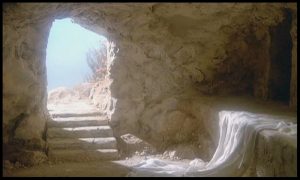HOMILY EASTER SEASON WEEK 02 04 – Year I
Faith, Transformation and Eternal Life
(Acts 5:27-33; Ps 34; Jn 3:31-36)
************************************************
Faith, transformation and eternal life – these three words sum up the message from today’s readings.
We believe in the resurrection of Jesus; we experience transformation through forgiveness and healing, and we then live lives of obedient love.
It all begins with faith. We believe what Peter and the apostles proclaimed to the Jewish leaders in the first reading: God our Father (Creator for the Indigenous, YHWH for the Jews, Allah for the Muslims) has raised Jesus as Leader and Savior from the dead to new life (he would never die again) through the power of the Holy Spirit who also serves as a witness to this unprecedented, earth-shattering, historic event. Never before in the history of humanity has such a momentous event occurred. No wonder the apostles were beside themselves in fearlessly witnessing to this great event.
The consequence of this act of God in history is powerful and personal. We are to repent, to turn around, to change, to put on our higher mind, confess our sins, and receive complete and total forgiveness. God won’t even remember our sins – they no longer exist (Hebrews 8:12). Step 5 of the 12 Step program puts it this way: “Admitted God, ourselves, and one other person the exact nature of our wrongs.”
But there is more – we are to be open to receive healing of our sinfulness – that which makes us sin. Good spirituality is all about letting go. We are to let go of our painful emotions such as anger and resentment, our defects of character and negative attitudes such as false pride, stubborn self-will and self-righteousness, and even all our addictions, whether chemical or process. Step 6 states: “We humbly asked God to remove all our defects of character” (I would add, “and fill us with the gifts of the Holy Spirit.”)
 An empty jail and an empty tomb – powerful symbols that invite us to leave behind us a string of empty tombs as we begin to experience that eternal life that Jesus came to give us through the Holy Spirit. That eternal life, here and now, is peace, joy, a right relationship with God, all other people, our selves and all of God’s creation. It is freedom from guilt and fear, anger and resentment, shock and shame, sadness and self-pity – the big eight emotions that underlie all our dysfunction. We have been set free – free to live and to love.
An empty jail and an empty tomb – powerful symbols that invite us to leave behind us a string of empty tombs as we begin to experience that eternal life that Jesus came to give us through the Holy Spirit. That eternal life, here and now, is peace, joy, a right relationship with God, all other people, our selves and all of God’s creation. It is freedom from guilt and fear, anger and resentment, shock and shame, sadness and self-pity – the big eight emotions that underlie all our dysfunction. We have been set free – free to live and to love.
Our response, as the Gospel puts it, is the exact opposite of the religious leaders who wanted to kill the apostles – so stuck were they in their own jealousy and self-constructed religious paradigm that they simply could not believe and be healed.
We, on the other hand, now have eternal life, and are to live in obedience to the Son whose command to us is to love God with our whole being; love others as we love ourselves, love one another as he has loved us, and even love our enemies by forgiving them. That is truly newness of life.
St. Mother Theresa of Calcutta comes to mind as a person whose faith in the resurrection and whose experience of the forgiveness and healing power of Jesus led her to commit herself to the service of the poor and disadvantaged totally and wholeheartedly. She serves as an excellent example and inspiration for us.
The Eucharist is a share in the passion, death and resurrection of Jesus Christ. It is a celebration of faith that sends us out to live our faith, forgiven and healed, through acts of love, and to leave behind us a string of empty tombs.



